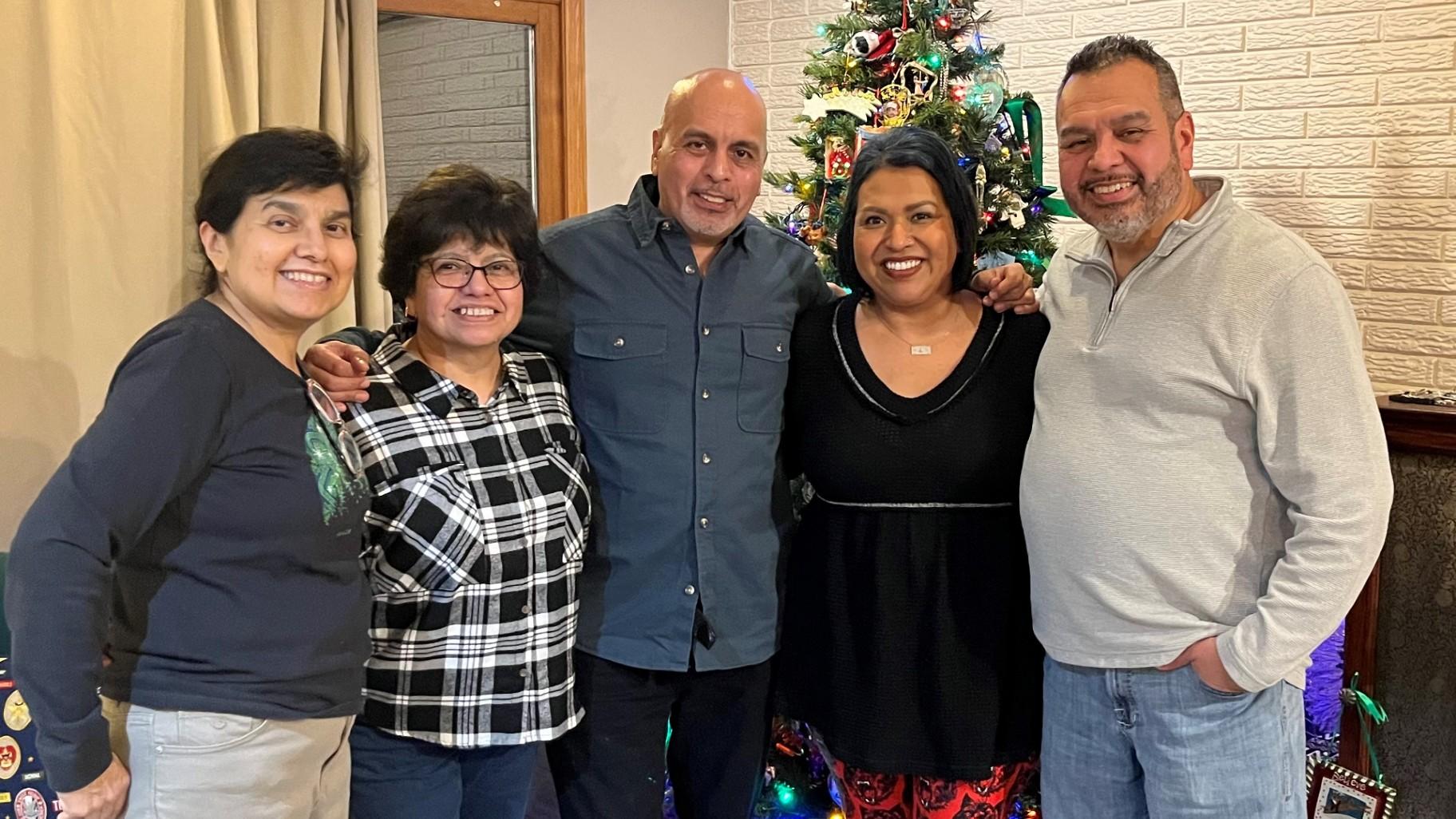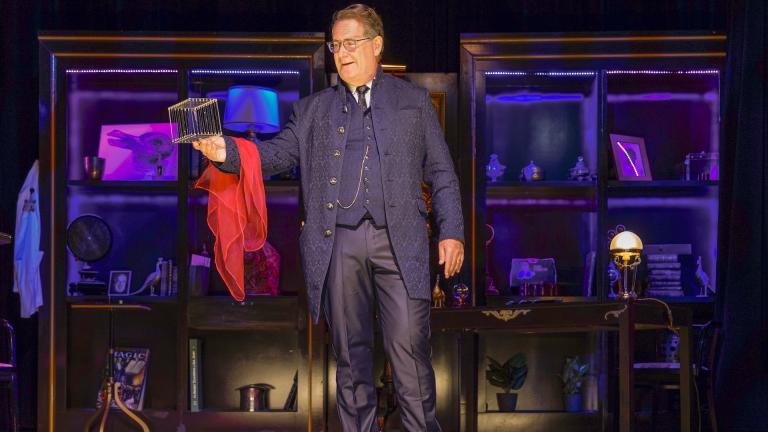On Dec. 15, 2023, Jimmy Soto saw the sunrise over Lake Michigan for the first time in 42 years.
“To be there and to see it, it let me know that I was really out,” he told WTTW News from his sister’s living room. “The fresh air, it was a beautiful sunny day.”
When WTTW News visited Soto at his sister’s home in Chicago, he’d been out of prison for just six days as he was discovering a completely different world from the one he left.
“I crashed my iMac notebook!” he said with a laugh. “I remember several times, I get stuck on my phone, folders will pop up, and I can’t get outta there.”
It’s not just the technology. Even a trip to the grocery store can be overwhelming for someone who’s been imprisoned since he was 19 years old.
“I’m standing there pushing the cart, and I got frozen,” Soto said. “I see all this variety of oatmeals, and I don’t know what to do. I picked the oatmeal they sell in the commissary, because I knew that.”
He’s now grasping the parts of freedom that most of us take for granted.
“(The) best part is being with family, waking up in a queen-size bed. Being able to walk no more than 6 feet to a shower by yourself, with hot water that can adjust,” he said. “Those things, these little amenities, mean so much to a person once they get out. I’m so appreciative.”
Yet, it’s not so easy for his mind to let go. Though he now has a queen-size bed, Soto only sleeps on one half of it because he’s so accustomed to a twin-size bed.
 Jimmy Soto looks at a sunset after his release from prison. (Courtesy of Pilar More)
Jimmy Soto looks at a sunset after his release from prison. (Courtesy of Pilar More)
Soto walked out of Stateville Correctional Center on Dec. 14, after the Cook County State’s Attorney’s Office dropped the charges in his double homicide conviction.
“I kept hope alive, and my family was there. It means everything. I can’t wait to start my life on this side of the wall,” Soto told a crush of cameras and reporters waiting, along with family and friends.
He and his cousin, David Ayala, were released from serving their life sentences.
“It’s a tragedy that he spent 42 years waiting for this moment,” said Deb Loevy, executive director of the Exoneration Project and one of Soto’s attorneys.
While serving his sentence, Soto earned a bachelor’s degree from Northwestern University.
Before that, he had already become something of a jailhouse litigator by teaching himself the law in order to prove his own innocence.
Soto and his attorneys had two claims: one of actual innocence, that Soto did not pull the trigger in the double homicide in which he was convicted all those years ago.
The other claim was a conflict of interest: His defense attorney at the time was also representing the person who Soto and attorneys believe was the actual shooter.
Soto didn’t know that until much, much later.
“Jimmy had raised some of these issues before, but courts never really looked at them. There were always reasons that the court just outright dismissed his petition,” explained his attorney, Lauren Myerscough-Mueller, also with the Exoneration Project. “The system and courts really like finality. That’s how our system is set up, that once you’re convicted it is very difficult to overturn a conviction.”
Soto pointed out that it’s even harder trying to overturn a conviction from behind prison walls.
“My first post-conviction lingered in state courts for over 20 years,” Soto said. “It got reversed and remanded twice. I thought I’d get relief from that, but it didn’t happen. So, I had to go back to square one — look at all these records and reports and doing FOIA requests, etc.”
“He filed so many petitions, so many motions, so many briefs in his own case to try to get someone to listen, to get a court to listen, to get a state’s attorney to listen. Anyone. And it still took 42 years!” Myerscough-Mueller said.
Soto plans to attend law school and become a wrongful conviction attorney, having already won his biggest case yet. Myerscough-Mueller said he was more involved in his own case than any client had been. He was even allowed to participate in a mock trial argument for his case, via Zoom from the prison. He’s currently gearing up to retake the LSAT, having been one of two students to take it while in prison for the first time in the state of Illinois.
“Everytime we were talking about the case, he had new ideas about whether it’s a new case to cite, or new investigatory path or new witness we could talk to,” Myerscough-Mueller said. “He was always thinking about the case.”
“Just imagine,” Soto said, “you know you’re innocent, yet nobody’s hearing you, nothing’s being done.”
 Jimmy Soto and his siblings. (Courtesy of Pilar More)
Jimmy Soto and his siblings. (Courtesy of Pilar More)
These days, Soto is catching up on all that he missed, with help from his little sister, Pilar More. On the day WTTW News visited, she showed him family photo albums that he’s never seen.
“My dad went every Sunday to visit Jimmy, so I went, too,” More said. “So I saw him all the time, and I wrote him letters, and drew him little pictures. As I got older, I sent him pictures.”
More was 8 years old when her big brother went to prison. Today, she’s 50.
“I’ve been with him every step of the way to some capacity,” More said. “There were times where I felt the case maybe had some movement, then it wouldn’t. I just look forward to getting to know him, because it is different. All of those letters and stuff they can never convey all that someone misses of everyday life.”
Soto’s family has also set up a GoFundMe account to help him get established and help with his future.
One family member who isn’t here to help Soto take his next steps is their father, who died while Soto was in prison.
“He was in my corner, he believed. Who wants to think their son did something?” Soto said tearfully. “He wasn’t there to see my victory. (When) someone is in your corner like that, for the small things, he would send commissary money. It’s hard.”
Despite having served the longest wrongful conviction sentence in the state of Illinois, Soto said he’s not angry, just focused on his future.
“It’s like an alternative universe,” Soto said. “You feel like you were encapsulated in a tomb somewhere and you didn’t know the real world. So you tend to block it out, because to think about it, it tears you apart. You have to say it didn’t exist in a sense.
“But then to get out there, and see it, it’s tangible. I described it as, on the other side of the wall the air smells fresher, everything looked brighter.”








